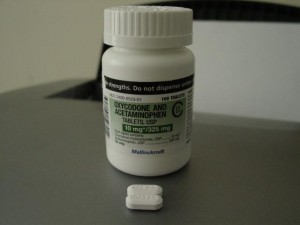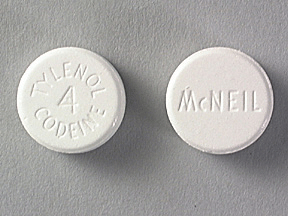 Oxycodone, Codeine and Hydrocodone are opioid pain pills. Opioids are a type of analgesic (painkiller) prescribed for treatment of mild to serious pain. The use of opioids during pregnancy has been shown to increase the risk of serious birth defects for the unborn child, according to a report by the Centers for Disease Control (CDC) published in the American Journal of Obstetrics and Gynecology.
Oxycodone, Codeine and Hydrocodone are opioid pain pills. Opioids are a type of analgesic (painkiller) prescribed for treatment of mild to serious pain. The use of opioids during pregnancy has been shown to increase the risk of serious birth defects for the unborn child, according to a report by the Centers for Disease Control (CDC) published in the American Journal of Obstetrics and Gynecology.
What are Opioids?
Opioids are some of the oldest known drugs in the world. As an analgesic, opioids decrease the perception of and reaction to pain and increase pain tolerance. Additionally, some opioids can aid in relief symptoms of nonproductive cough and diarrhea. Available as either a single ingredient product or a compound product, there are many brands of opioid drugs. See the full list below.
Oxycodone is a synthetic (manmade) derivative of thebaine that is prescribed to treat moderate to severe pain. It is formulated as a single ingredient product or a compound product in conjunction with other less effective non-opioid compounds such as acetaminophen or ibuprofen. It has an extended-release form designed to treat consistent pain.
Codeine is a naturally occurring opioid used to treat the symptoms of mild to moderately severe pain, nonproductive cough and diarrhea. It is available as a single ingredient drug or in combination with other compounds such as acetaminophen, aspirin or ibuprofen.
Hydrocodone, a synthetic (manmade) derivative of codeine or thebaine, is available alone or in a compound with other less effective non-opioid compounds such as acetaminophen or ibuprofen. It offers symptomatic relief of moderate to moderately severe pain and of nonproductive cough.
Opioids and Birth Defects

Research has linked maternal use of opioids such as Oxycodone, Codeine and Hydrocodone to birth defects including:
- Spina Bifida – Congenital (present at birth) neural tube defect in which part of the spinal cord is exposed through a gap in the backbone. Spina bifida can cause partial paralysis and, sometimes, mental handicap.
- Hydrocephaly – Occurs when cerebrospinal fluid collects in the ventricles of the brain. This can result in the infant’s head being oversized and may require surgeries throughout the child’s lifetime to treat.
- Congenital Glaucoma – Refers to a group of eye conditions that are congenital (present at birth) and lead to damage to the optic nerve that carries information from the eye to the brain. It almost always requires surgical treatment to resolve.
- Gastroschisis – Birth defect in which an infant’s intestines stick out of the abdominal wall through a defect on one side of the umbilical cord.
- Heart Defects – Issues with the heart including, but not limited to, left heart syndrome, a critical heart defect. Congenital heart defects afflict about 40,000 infants each year, and many infants with heart defects will die within a year of birth. The infants who survive face invasive surgeries, lengthy hospital stays and a lifetime of treatment.
Report from Center for Disease Control (CDC)
 In March 2011, a report from the CDC stated that their ongoing National Birth Defects Prevention Study uncovered a link between use of opioid painkillers just before or during pregnancy and a higher likelihood of birth defects. Infants exposed to opioid analgesics, such as Oxycodone, Codeine and Hydrocodone, through maternal use preceding or during pregnancy may face an increased risk of:
In March 2011, a report from the CDC stated that their ongoing National Birth Defects Prevention Study uncovered a link between use of opioid painkillers just before or during pregnancy and a higher likelihood of birth defects. Infants exposed to opioid analgesics, such as Oxycodone, Codeine and Hydrocodone, through maternal use preceding or during pregnancy may face an increased risk of:
- Spina Bifida
- Hydrocephaly
- Congenital Glaucoma
- Gastroschisis
- Left Heart Syndrome – twice the risk of women who took no opioid drugs
Study data was collected from 10 states, and the CDC found that 2 to 3 percent of the women studied received prescription opioid painkillers. Illicit use was not factored into the study. According to the CDC, this study is the largest ever conducted on causes of birth defects in the United States.
Are Opioids Being Over-Prescribed?
 Opioids, which are the second leading cause of accidental death, are also now the most commonly prescribed type of medication, according to studies by the University of Pennsylvania School of Medicine and the National Institute on Drug Abuse. Study author Thomas McLellan notes that opioids are effective at reducing pain but have a high rate of abuse. The studies address concerns that doctors are prescribing opioid painkillers too often, noting the drastic increase in opioid prescriptions over the last decade. In an accompanying commentary to the study, researchers outlined ways to help reduce opioid prescriptions.
Opioids, which are the second leading cause of accidental death, are also now the most commonly prescribed type of medication, according to studies by the University of Pennsylvania School of Medicine and the National Institute on Drug Abuse. Study author Thomas McLellan notes that opioids are effective at reducing pain but have a high rate of abuse. The studies address concerns that doctors are prescribing opioid painkillers too often, noting the drastic increase in opioid prescriptions over the last decade. In an accompanying commentary to the study, researchers outlined ways to help reduce opioid prescriptions.
Another study, conducted by St. Michael’s Hospital and the Institute for Clinical Evaluative Sciences in Canada, found that some physicians are prescribing opioids 55 times as often as others. The study linked opioid-related deaths to physicians who frequently prescribe opioids, suggesting that doctors who often prescribe opioids may not be doing so safely. The results were published in the Canadian Family Physician journal and examined the opioid prescription rates of family physicians in Ontario.
Act Now and Seek The Compensation You Deserve
If your child suffered birth defects that may be the result of an opioid painkiller such as Oxycodone, Codeine or Hydrocodone please contact the lawyers at The Oshman Firm for a free and confidential case evaluation. We will find answers, hold negligent companies responsible, and fight to get you the compensation you deserve.
Types of Opiods
| Opium alkaloids | Diphenylpropylamine derivatives |
| Phenanthrenes naturally occurring in (opium): | Propoxyphene |
| Codeine | Dextropropoxyphene |
| Morphine | Dextromoramide |
| Thebaine | Bezitramide |
| Oripavine | Piritramide |
| Methadone | |
| Semisynthetic derivatives | Dipipanone |
| Levomethadyl Acetate (LAAM) | |
| Diacetylmorphine (heroin) | Difenoxin |
| Dihydrocodeine | Diphenoxylate |
| Hydrocodone | Loperamide |
| Hydromorphone | |
| Nicomorphine | Oripavine derivatives |
| Oxycodone | |
| Oxymorphone | Buprenorphine – partial agonist |
| Synthetic opioids | Dihydroetorphine |
| Anilidopiperidines | Etorphine |
| Fentanyl | |
| Alphamethylfentanyl | Morphinan derivatives |
| Alfentanil | |
| Sufentanil | Butorphanol – agonist/antagonist |
| Remifentanil | Nalbuphine – agonist/antagonist |
| Carfentanyl | Levorphanol |
| Ohmefentanyl | Levomethorphan |
| Phenylpiperidines | |
| Pethidine (meperidine) | Others |
| Ketobemidone | |
| MPPP | Lefetamine |
| Allylprodine | Meptazinol |
| Prodine | Tilidine |
| PEPAP | Tramadol |
| Tapentadol | |
| Benzomorphan derivatives | |
| Dezocine – agonist/antagonist | |
| Pentazocine – agonist/antagonist | |
| Phenazocine |
